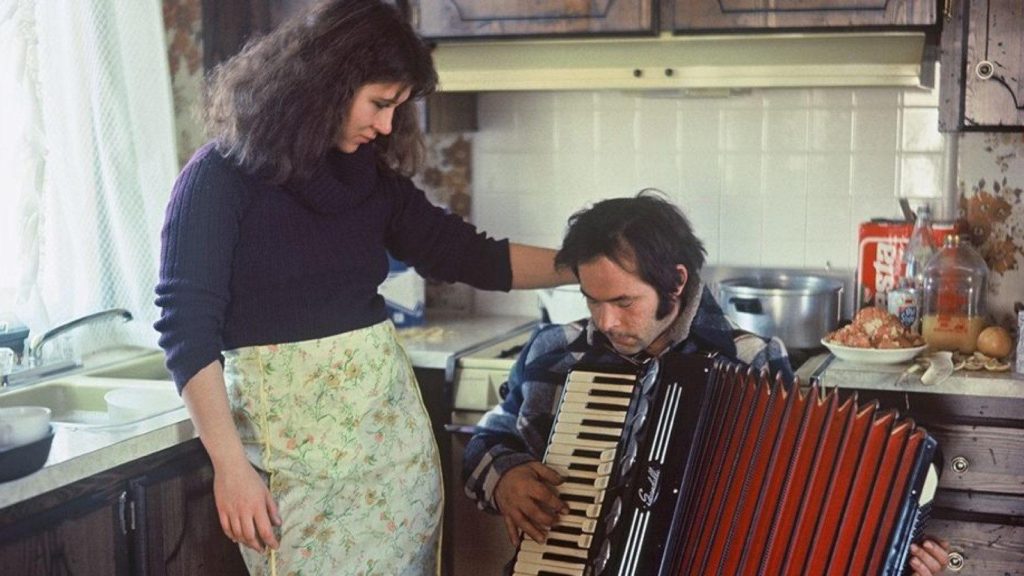
Eva: “No-one kicks you here, Bruno.”
Bruno Stroszek: “Not physically, here they do it spiritually.”
Stroszek is a film riddled with misfits. Its title character, the musician Bruno Stroszek, is the quintessential misfit. Director Werner Herzog sets him against characters more comfortable in their social roles and identities.
Bruno is an outcast wherever he lives, and both the German friends he leaves behind and his newfound community in Wisconsin judge him to be nothing more than an alcoholic ex-con (whose crime the audience never learns) whose instruments are out of tune. He is just another immigrant who can’t pay his rent.
The banker who reclaims Stroszek’s mobile home confesses to him that the systems we’ve made are “out of our control.” Herzog reveals with startling clarity how those systems chew up and spit out people like Stroszek. He thus becomes a sort of scapegoat, punished with unwarranted shame.
But to the audience and to Eva (the prostitute he lives with for much of the film) Stroszek is an artist whose music deserves to be heard and whose hopes deserve to be fulfilled. To Eva he’s neither a knight in shining armor nor a charming womanizer. He’s simply Stroszek, who loves her.
This simplicity, spontaneity, and outsider mentality reflect Herzog’s approach to the film. Most of his actors were not professionals. The music was largely improvised. In fact, the film was written in only four days specifically for the German actor, musician, and artist Bruno Schleinstein.
Stroszek is a painful story. Few of Stroszek’s immigrant American Dream-style hopes and humors are realized. Though the ending is ambiguous, the final scenes impress the audience with the paradoxical sorrow and light-heartedness that are present on Stroszek’s face from the outset. As Stroszek sinks deeper into sorrow, his sturdy demeanor forms a constant throughout the film, thereby expressing the absurdity in the inextricableness of both sorrow and joy. In this way, the film itself is a misfit; just like Stroszek, it’s caught between tragedy and comedy. Thus, the audience senses that they have encountered a real person, not just a film.
—Nathaniel Rogers
- Directed by: Werner Herzog
- Produced by: Willi Segler
- Written by: Werner Herzog
- Music by: Chet Atkins Sonny Terry
- Cinematography by: Thomas Mauch
- Editing by: Beate Mainka-Jellinghaus
- Release Date: 1977
- Running Time: 115
- Language: German, English, Turkish
Arts & Faith Lists:
2010 Top 100 — #87
2011 Top 100 — #51